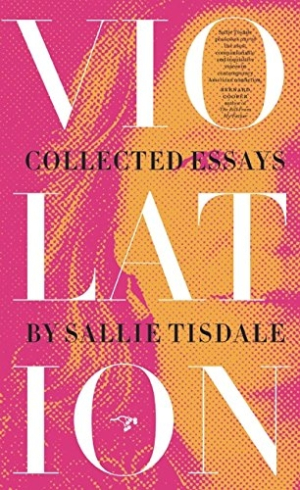Violation
Collected Essays
The “perfume” of Sallie Tisdale’s work will be enticing to all readers enamored of the essay form.
Sallie Tisdale has lately emerged as one of America’s foremost essayists, with work regularly appearing in Harper’s, the New Yorker, and other high-profile publications. In Violation, a definitive collection of twenty-eight of her essays, readers new to Tisdale’s work will discover a clear-eyed and compassionate writer who has a keen interest in the world around her. Whether she’s writing about her uniquely dysfunctional family, caring for cancer patients, or teaching inner-city kids about expressing themselves through words, these essays feel both intimate and immediate.
Take, for example, “Big Ideas,” in which Tisdale writes about writing—how ideas come, the process of getting words down on paper, and the gulf of emptiness a writer feels when nothing’s working. “I run the pen across the page just to make the shape of letters, massage the knots from a single sentence, then stare at the page until, thank God, the doorbell rings and I can leave.” There’s nothing especially glamorous about the act of composition. In fact, it’s when the words fail to come that the real drama begins.
Some of the most affecting essays in Violation center around Tisdale’s difficult relationships with her parents and siblings. The title essay takes an unflinching look at how her family members feel about seeing themselves, often portrayed in an unflattering light, in her work. Her sister is angry about Tisdale’s latest book, “and she is also just angry.” Tisdale’s memories of their early childhood don’t always align with what her sister remembers, and this forms the core of a nagging doubt about memoirs in general.
What’s true? What’s invented (even unconsciously) to generate a greater effect? It’s impossible to say, Tisdale concludes, because “the writer’s own perfume lingers on every word, gently and insistently filling the reader’s head with one person’s singular world, shared by no one else.”
The “perfume” of Sallie Tisdale’s work will be enticing to all readers enamored of the essay form.
Reviewed by
Lee Polevoi
Disclosure: This article is not an endorsement, but a review. The publisher of this book provided free copies of the book to have their book reviewed by a professional reviewer. No fee was paid by the publisher for this review. Foreword Reviews only recommends books that we love. Foreword Magazine, Inc. is disclosing this in accordance with the Federal Trade Commission’s 16 CFR, Part 255.

